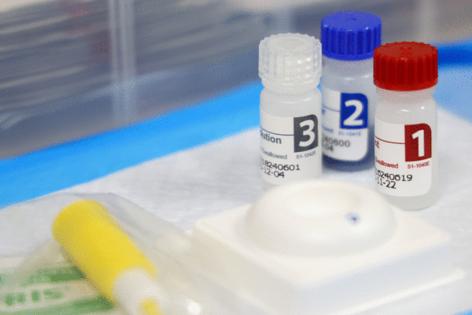Commentary: Ending the HIV epidemic is in sight. We can't stop now
Published in Op Eds
Thanks to decades of sustained federal investment, Chicago, Cook County and Illinois are on the cusp of ending the HIV epidemic in our city, county and state. This remarkable progress is a testament to programs such as the Ryan White Comprehensive AIDS Resources Emergency (CARE) Act, established in 1990 to provide crucial health care to those living with HIV and AIDS.
This critical legislation, named in honor of young AIDS activist Ryan White, marked a turning point in our fight against HIV. It wasn’t just a humanitarian response; it was sound public health policy. Within that decade, the spread of HIV, the progression of HIV to AIDS and the mortality rates due to AIDS all peaked and have been declining ever since.
Funding channeled through state and city agencies such as the Illinois Department of Public Health (IDPH), the Cook County Department of Pubic Health (CCDPH) and the Chicago Department of Public Health (CDPH), alongside direct support to community organizations, made medical treatment and support services accessible, especially for low-income individuals.
Coupled with Centers for Disease Control and Prevention grant programs for monitoring, testing and prevention with lifesaving tools such as the prophylaxis medicines PrEP and Doxy PEP, we’ve built a robust system that works.
It is thanks to this funding and the work of hundreds of epidemiology teams at local health agencies including IDPH, CCDPH and CDPH that we have data that shows how many people have received an HIV diagnosis and how many people are receiving HIV care. Thirty-five years later, Chicago, Cook County and Illinois, along with the rest of the country, have seen a dramatic decrease in new diagnoses thanks to these prevention, testing and treatment programs. We also see higher percentages of those living with HIV getting vital care and treatment and living long, full lives.
But this progress is fragile. To pull back now would be a catastrophic mistake, especially for our most vulnerable communities. Despite hitting a significant low in new HIV cases, the burden of HIV/AIDS still falls disproportionately on communities of color. And while medical advancements allow those living with HIV to survive and thrive, their care demands continuous, costly services. More work is needed to see basic investment and improvements to HIV monitoring and infrastructure while also making use of more advanced technology.
Consider the immediate impact: In 2024 alone, nearly 14,000 Chicagoans and thousands more Illinoisans relied on Ryan White funding for their HIV care. A staggering 70% of those served by CDPH-funded programs are Black, Latino, or Hispanic — the very communities most affected by HIV/AIDS. The lifeline for these programs? Federal funding. In fact, more than 90% of CDPH’s annual budget for managing infectious diseases, including HIV, comes directly from federal sources.
Yet, despite this clear success and urgent need, Washington, D.C., is debating draconian cuts to these vital programs in next year’s budget, even threatening to rescind funds already allocated for 2025. The consequences of these cuts would be devastating. AmfAR, the Foundation for AIDS Research, projects that a 50% reduction in HIV prevention funding from the CDC could lead to 75,000 new HIV infections across the U.S. by 2030 — and that number would nearly double if all funding is eliminated.
In Illinois, we could face over 5,500 additional new HIV cases, leading to sicker populations and a tragic rise in deaths due to lack of treatment. Without these federal dollars, our neighbors would lose access to critical prevention tools such as PrEP, essential testing for HIV and sexually transmitted infections, and lifesaving treatments.
We stand at a crossroads. We have the knowledge, tools and proven programs to end the HIV epidemic. We are so close. To retreat now, when the finish line is in sight, would be an act of profound negligence.
We urge our elected officials in Washington, D.C., to reject these dangerous cuts and continue investing in the programs that protect the health and well-being of all Illinoisans. We cannot afford to backtrack and lose the tremendous progress that has been made in fighting HIV.
The health of our communities depends on it.
____
Dr. Olusimbo Ige is commissioner of the Chicago Department of Public Health. Dr. Kiran Joshi is chief operating officer of the Cook County Department of Public Health. Dr. Sameer Vohra is director of the Illinois Department of Public Health.
_____
©2025 Chicago Tribune. Visit at chicagotribune.com. Distributed by Tribune Content Agency, LLC.

























































Comments